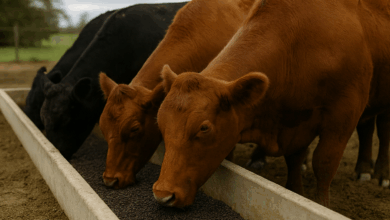
As the demand for sustainable solutions to climate change intensifies, biochar has emerged as a versatile material with applications ranging from soil enhancement to carbon sequestration. Several industrial-scale facilities worldwide have adopted innovative approaches to biochar production, showcasing the material’s potential and operational viability.
Stockholm’s Urban Biochar Initiative
In an effort to transform urban green waste into valuable resources, Stockholm has implemented a pyrolysis plant designed to produce biochar and renewable energy. By 2020, this facility aimed to generate 25,000 MWh of heat annually, sufficient to heat 400 apartments, thereby creating the world’s first urban carbon sink utilizing biochar.
Arigna’s Transition from Coal to Biochar
The Arigna Group, a longstanding Irish coal enterprise, has pivoted towards green energy by producing biochar from olive pits. Branded as Harvest Flame, this biochar serves as a low-emission biofuel alternative to traditional coal. The company’s initiative not only addresses environmental concerns but also leverages existing infrastructure to produce biochar at a competitive price point.
Takachar’s Portable Biochar Technology
Addressing the issue of agricultural waste burning in India, Takachar, a spin-off from the Massachusetts Institute of Technology (MIT), has developed portable torrefaction reactors. These devices convert biomass waste into biochar or biocoal, providing farmers with a sustainable alternative to open burning and contributing to air quality improvement. By 2020, Takachar had processed 3,000 tons of biomass waste, exemplifying scalable biochar production.
Hydrothermal Carbonization in Mexico City
In 2022, Mexico City initiated the construction of a hydrothermal carbonization (HTC) plant capable of processing 23,000 tons of organic waste annually. This facility utilizes TerraNova HTC technology, integrating a pyrolysis unit to supply process heat, thereby enhancing the efficiency of biochar production. The project exemplifies urban-scale implementation of biochar technology for waste management and renewable energy generation.
Google’s Investment in Biochar Carbon Credits
In a significant move towards carbon neutrality, Google has entered into an agreement with Indian supplier Varaha to purchase carbon credits derived from biochar production. This initiative involves converting agricultural waste into biochar, which is then utilized as a soil amendment, sequestering carbon dioxide. By 2030, Google plans to acquire 100,000 tons of carbon credits through this program, underscoring the scalability and environmental benefits of industrial biochar production.
Conclusion
These case studies illustrate the diverse approaches and scales at which biochar production is being implemented globally. From urban waste management to agricultural applications, industrial-scale biochar facilities are contributing significantly to sustainability efforts, offering renewable energy solutions, enhancing soil health, and sequestering carbon.
Sources:



